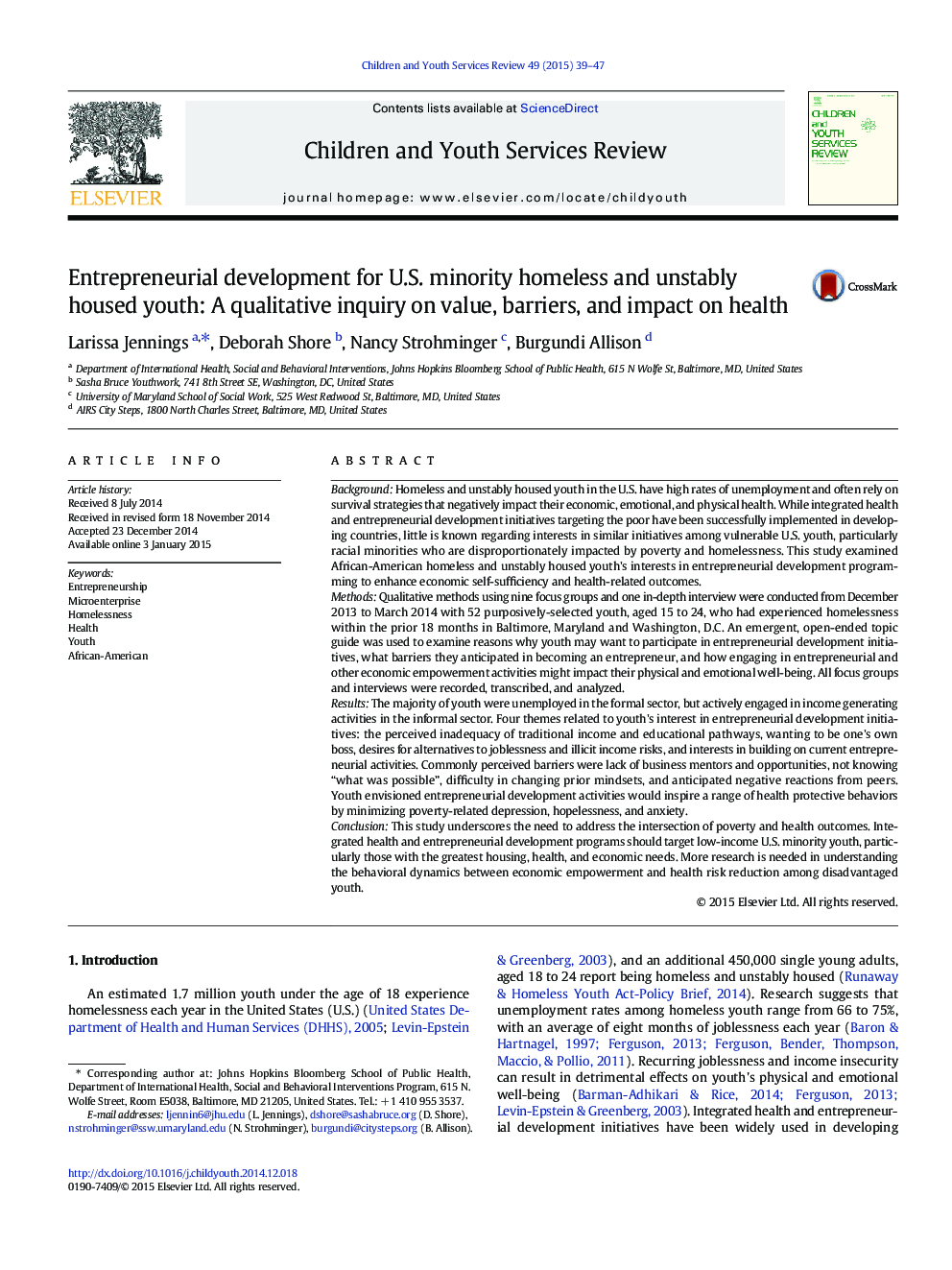| کد مقاله | کد نشریه | سال انتشار | مقاله انگلیسی | نسخه تمام متن |
|---|---|---|---|---|
| 346022 | 617785 | 2015 | 9 صفحه PDF | دانلود رایگان |

• Homeless youth are interested in integrated health and entrepreneurial development.
• Interests relate to improving financial independence and healthy lifestyle choices.
• Barriers include lack of knowledge, business mentors, and positive peer support.
• Research is needed to understand health behavioral dynamics of economic empowerment.
BackgroundHomeless and unstably housed youth in the U.S. have high rates of unemployment and often rely on survival strategies that negatively impact their economic, emotional, and physical health. While integrated health and entrepreneurial development initiatives targeting the poor have been successfully implemented in developing countries, little is known regarding interests in similar initiatives among vulnerable U.S. youth, particularly racial minorities who are disproportionately impacted by poverty and homelessness. This study examined African-American homeless and unstably housed youth's interests in entrepreneurial development programming to enhance economic self-sufficiency and health-related outcomes.MethodsQualitative methods using nine focus groups and one in-depth interview were conducted from December 2013 to March 2014 with 52 purposively-selected youth, aged 15 to 24, who had experienced homelessness within the prior 18 months in Baltimore, Maryland and Washington, D.C. An emergent, open-ended topic guide was used to examine reasons why youth may want to participate in entrepreneurial development initiatives, what barriers they anticipated in becoming an entrepreneur, and how engaging in entrepreneurial and other economic empowerment activities might impact their physical and emotional well-being. All focus groups and interviews were recorded, transcribed, and analyzed.ResultsThe majority of youth were unemployed in the formal sector, but actively engaged in income generating activities in the informal sector. Four themes related to youth's interest in entrepreneurial development initiatives: the perceived inadequacy of traditional income and educational pathways, wanting to be one's own boss, desires for alternatives to joblessness and illicit income risks, and interests in building on current entrepreneurial activities. Commonly perceived barriers were lack of business mentors and opportunities, not knowing “what was possible”, difficulty in changing prior mindsets, and anticipated negative reactions from peers. Youth envisioned entrepreneurial development activities would inspire a range of health protective behaviors by minimizing poverty-related depression, hopelessness, and anxiety.ConclusionThis study underscores the need to address the intersection of poverty and health outcomes. Integrated health and entrepreneurial development programs should target low-income U.S. minority youth, particularly those with the greatest housing, health, and economic needs. More research is needed in understanding the behavioral dynamics between economic empowerment and health risk reduction among disadvantaged youth.
Journal: Children and Youth Services Review - Volume 49, February 2015, Pages 39–47